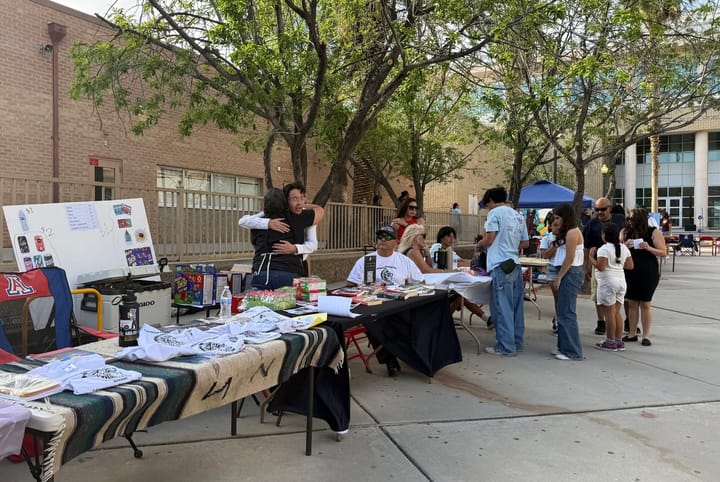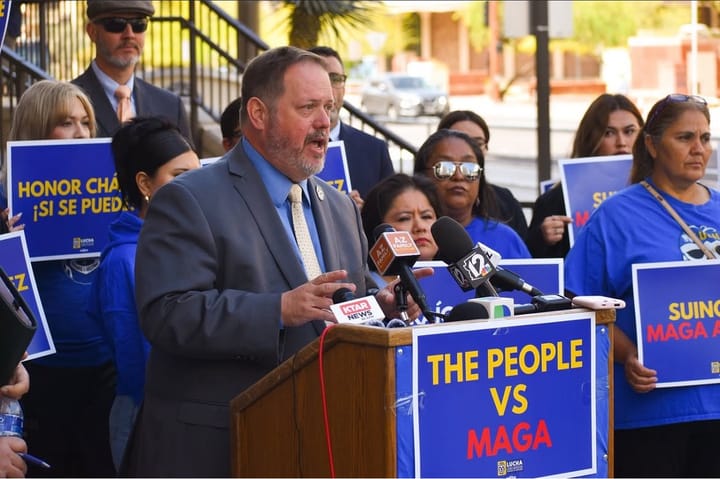Activists demand release of trans woman at Eloy Detention Center
Activists gathered outside the Eloy Detention Center to demand the release of a transgender Filipina woman facing deportation after years of alleged abuse in federal custody.
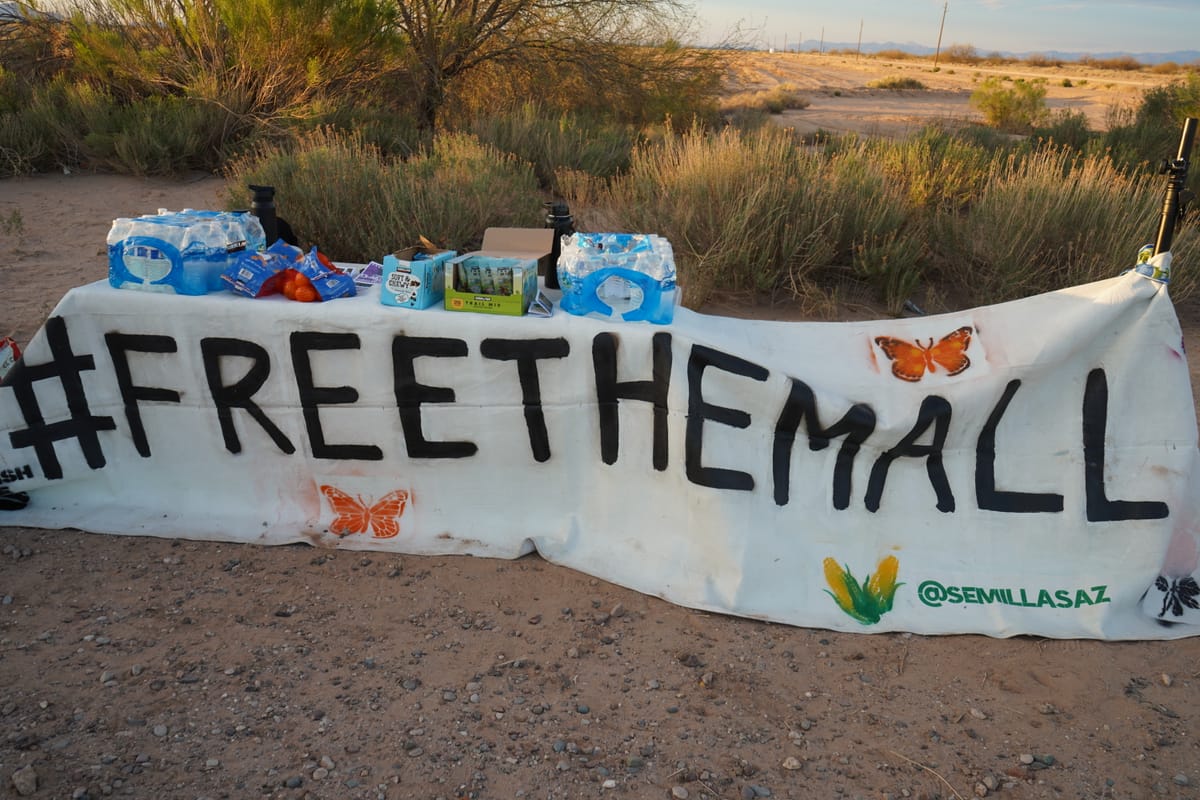
Dozens of activists gathered outside the Eloy Detention Center last month, demanding the release of a transgender Filipina woman facing deportation after years of alleged abuse in federal custody.
The protest spotlighted the conditions inside private prisons and the dangers faced by LGBTQ+ detainees.
The United States has the largest immigration detention system in the world, with more than 20,000 people imprisoned in mostly private prisons.
For years, people housed in these detention centers have spoken out against a lack of nutritious food, health care access, and basic respect and decency from prison guards and other detainees.
Ligaya Jensen was the lead plaintiff in a class-action lawsuit against GEO Group, a private prison company, regarding their use of toxic chemicals at a California ICE processing center where she was held for five years.
Jensen, a trans Filipina woman who is currently in ICE custody in Eloy, has become a symbol of resistance within a system that advocates call deadly by design.
Jensen received her residency in 1996. She later fell victim to an online scammer and accepted a plea deal in 2014 after the scammer implicated her in a crime.
After serving her time, she was immediately placed in ICE custody, where she has suffered severe medical neglect, poor living conditions, and a prolonged separation from her family, according to activists who met with her in late March.
Jensen’s petition demanding she be brought before a judge to determine if her detention is lawful expired March 5, so she faces deportation at any time.
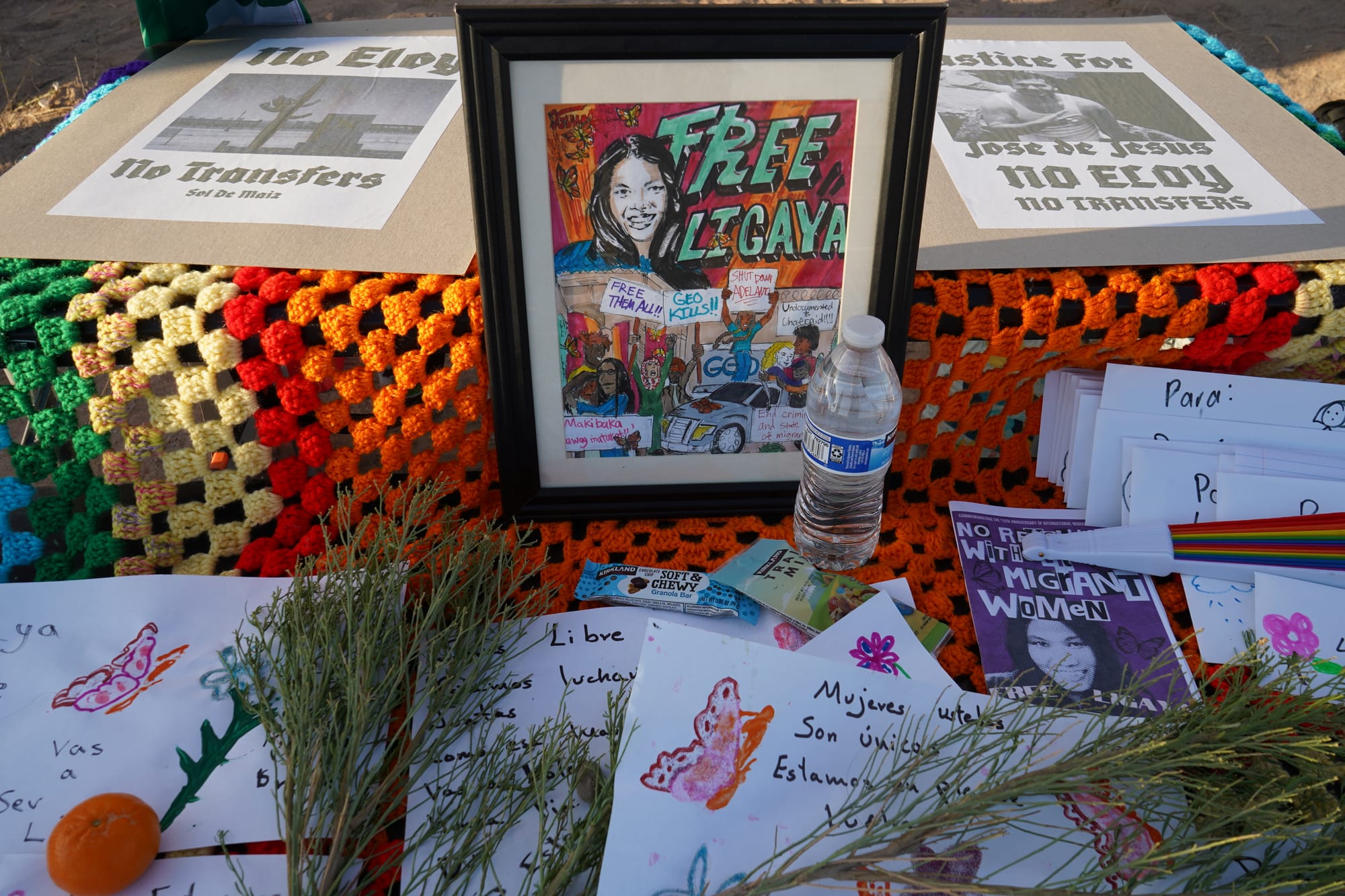
She was recently transferred to Eloy Detention Center, a private prison owned by CoreCivic, where activists and organizers from Southern California and Arizona gathered to hold a vigil and a protest for her release.
Among the attendees was Rafik Wahbi, a Ph.D. student at UCLA studying public health with a master’s degree in the same field. Wahbi has been researching public health in carceral facilities.
“These are torture chambers,” he told Tucson Spotlight. “They are meant to break people down. They're meant to starve them. They're meant to separate them from their family and from any sort of social interactions. What we see inside of prisons and jails is, more or less, what seems like a facility of people who are about to die.”
An internal report on 17 surprise ICE inspections, including one in Eloy, found that 35% of facilities violated standards related to environmental health and safety; 71% did not consistently provide required care for detainees in segregation; 82% did not meet standards for staff-detainee communication, such as logging requests or even providing detainees with access to paper request forms; 59% had instances of noncompliance with medical care standards; and 76% did not comply with grievance system standards.
For many people detained and formerly detained, the report came as no surprise.
The problem is exacerbated for trans women, who also have to deal with the denial of their trans identities and a lack of access to health care.
Detention can also be dangerous for people from the LGBTQ+ community. Jocelin Mendez, a trans migrant from Nicaragua, shared her experience during the vigil.
“I was treated horribly as a trans woman,” Mendez said in Spanish. “I didn’t have any dignity, they buried my dignity. I felt worse than a naked animal. It was horrible.”
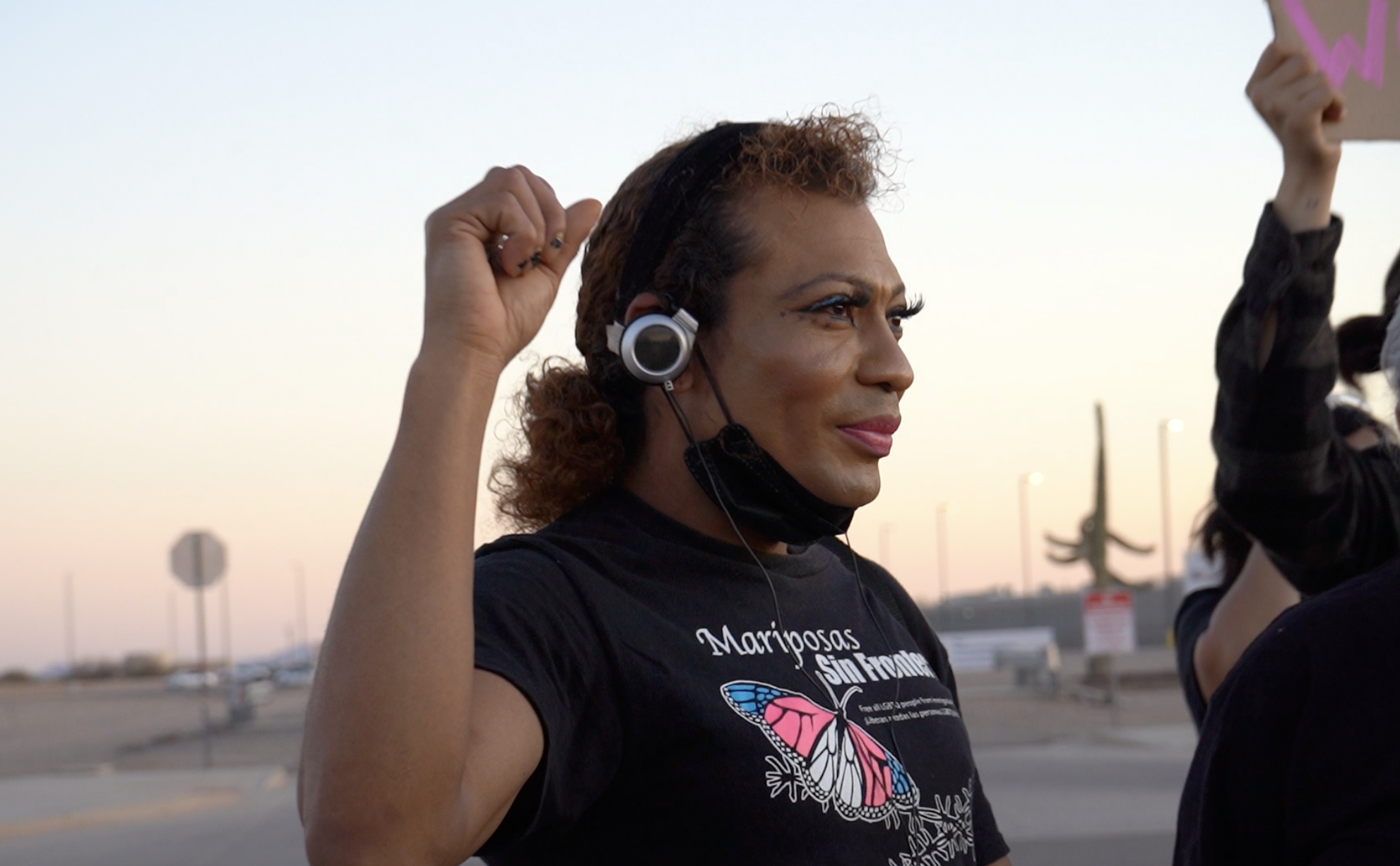
Mendez, an activist with Mariposas Sin Fronteras, spent time in the Eloy Detention Center. She says that aside from a lack of adequate food and clean water, detention officers dismissed her trans identity and denied her and other trans women medical access, leading to the death of her friend Roxana Hernandez.
“They didn't let Roxana take her medication, and when she got there, she was already telling them she couldn't stand it, that she was suffocating, and they told her she was crazy,” Mendez recounted. “They said, ‘everyone goes crazy when they get to the detention center.’”
Despite her pleas for medical attention, Hernandez, 33, died in the detention center just 11 days after being booked.
She’d been diagnosed with untreated HIV, dehydration, starvation, septic shock, anemia, lymphadenopathy, nodular pulmonary disease, and thrombocytopenia.
Hernandez had entered the U.S. in the same caravan as Mendez, where they met. Both had come to the United States looking for safety.
A trans person is murdered every three days, with Latin America and the Caribbean accounting for 73% of global murders.
In Nicaragua, LGBTQ+ groups report that police condone and tolerate violence against LGBTQ+ individuals and do not fully investigate their cases, according to a U.S. Department of State report on human rights practices in the country.
“I left my country seeking safety and freedom—because I'm under death threats—seeking to have my voice heard,” Mendez said. “But when you're detained, they don’t give us a voice, they don't give us security. It's supposedly a democratic country, but once you're in there, it's not democratic.”
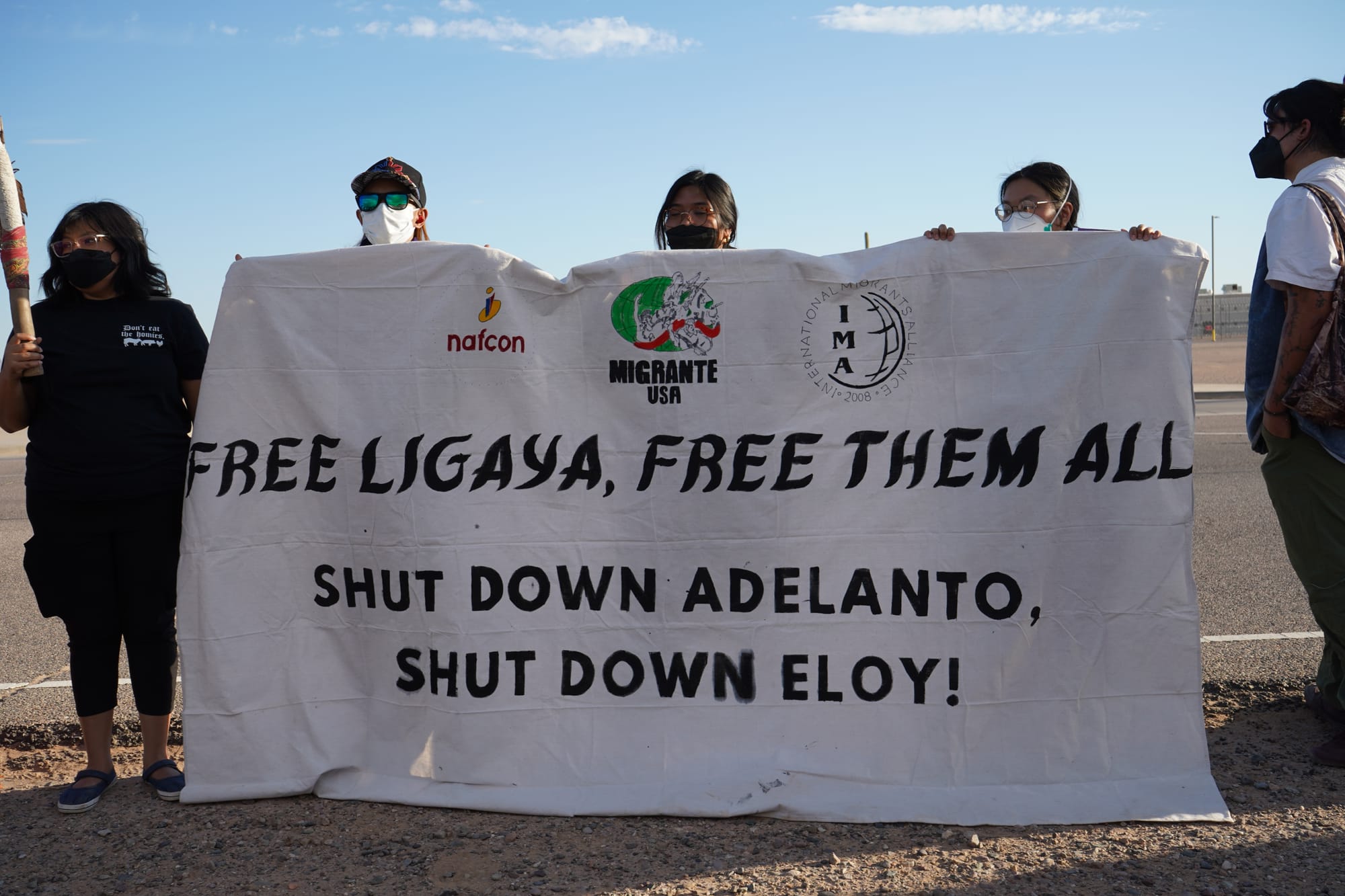
She recounts being forced to use her birth name, being physically harassed by guards, having them turn a blind eye to assaults from other incarcerated people, even pretending they didn’t speak or understand Spanish when being spoken to.
“‘You have no rights here,’ they always told us. ‘An immigrant has no rights here,’” she said.
Mendez remembers getting sick from drinking the tap water and receiving only a pill as treatment despite asking to go to the infirmary; eating cold eggs and stale bread for breakfast; being put in the men’s section; and spending days in solitary confinement with guards shining a bright light in her face every two hours.
“I started thinking about everything they would do to me if I returned to my country and then I said, ‘oh well, I’ll put up with everything,’” she said. “They don't know how hard it is in our countries and that I would rather put up with everything they do to me than return to my country and be killed.”
Karla Bautista, another trans migrant and activist for Trans Queer Pueblo in Phoenix, fled Guatemala trying to escape violence, racism, classism, and the lack of acceptance for trans women.
“(As migrants, we think that) the United States has better opportunities for us, but that's not the case, and we’re seeing right now,” she said. “We are forced to migrate because they take away our opportunities, criminalize our identities, and exclude us. There are no opportunities for us. That's why we migrate to this country.”
More than 20 years ago, Bautista was held in a hielera, or icebox, where people are supposed to be detained for a short period before their deportation proceedings—something still done today.
The American Immigration Council and other researchers and organizations have documented extremely low temperatures, overcrowding, sleep deprivation, and insufficient food—all things Bautista says she experienced during her time there.
“No one deserves to be in these detention centers. No one deserves to experience confinement, segregation, or lack of access to medical care,” she said.
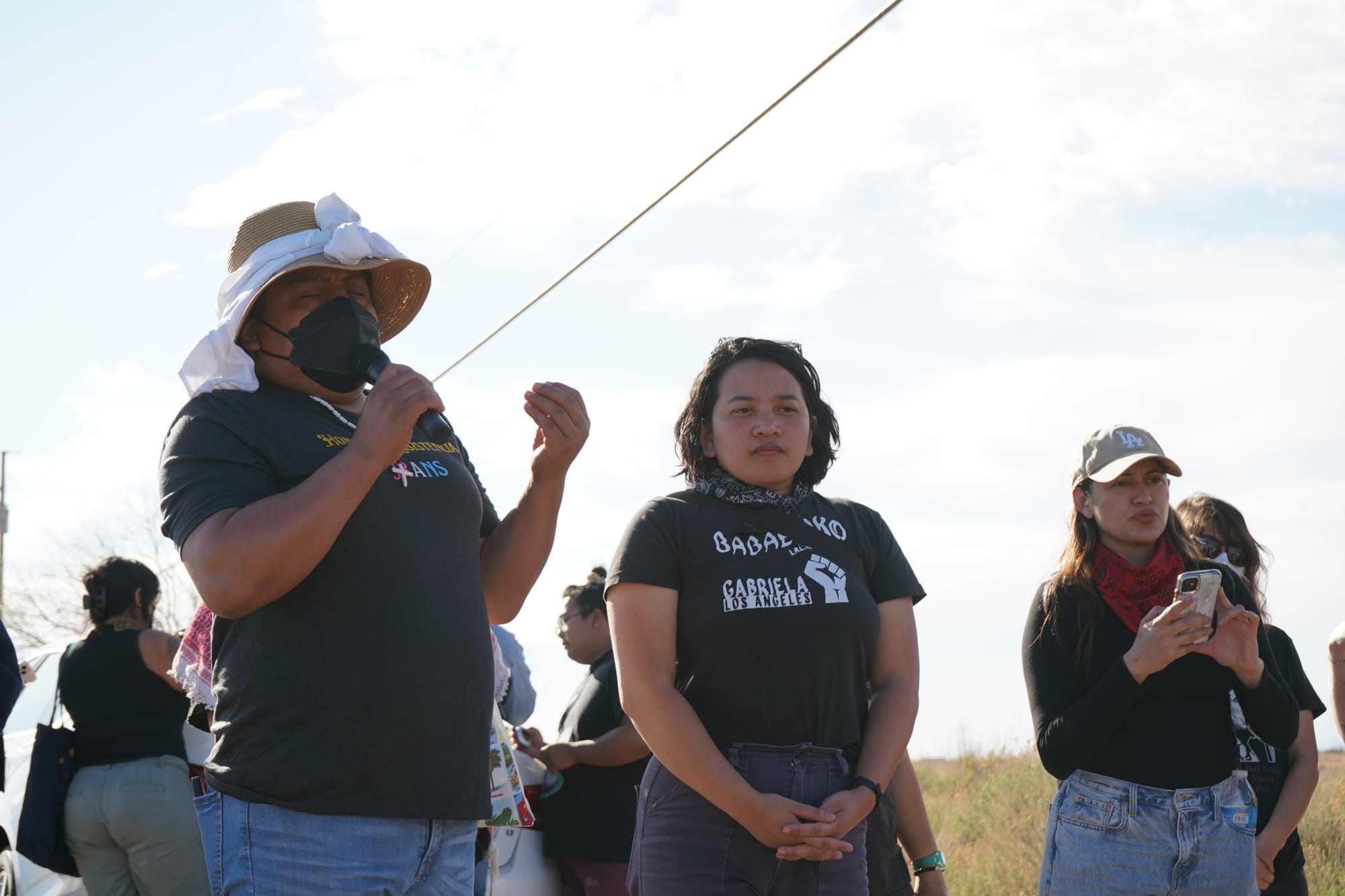
While trans women are more at risk for harassment and abuse, activists say all migrants experience the same substandard detention conditions.
“ You have to ask yourself, why are we creating a place where the conditions are so bad that people are dying simply because of being in there, and they can't come out?” Ph.D. student Wahbi asked. “It's truly so undignified, and it's meant to slowly kill people.”
There have been 15 deaths reported at Eloy Detention Center since 2003.
Earlier this month, a Chinese woman held in a Yuma detention center died by suicide. Reports showed that she had not been checked on for 7.5 hours and several required welfare checks had not been performed.
Stocks in private prison companies like CoreCivic and GEO Group soared after President Donald Trump’s election in 2024. In his first 50 days, ICE made more than 32,000 enforcement arrests.
With Trump’s crackdown on students, taxpayers, health care workers, people under temporary protected status, families, businesses, and others, private prisons are eyeing an increase in the penitentiary population and the number of migrants detained.
“No (more) borders, no (more) detention centers. Why? Because these are not the solution. On the contrary, they limit our rights,” Bautista said. “We propose a solution where our communities—where trans, queer, and nonbinary identities—can be free, celebrate ourselves, and have opportunities like any other human being.”
Susan Barnett is Deputy Editor of Tucson Spotlight and a graduate student at the University of Arizona. She previously worked for La Estrella de Tucson. Contact her at susan@tucsonspotlight.org.
Tucson Spotlight is a community-based newsroom that provides paid opportunities for students and rising journalists in Southern Arizona. Please support our work with a paid subscription.


